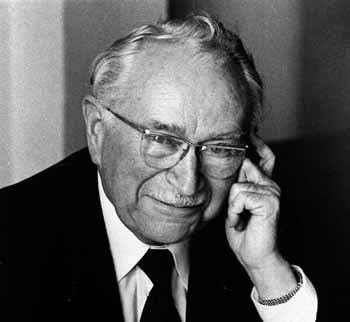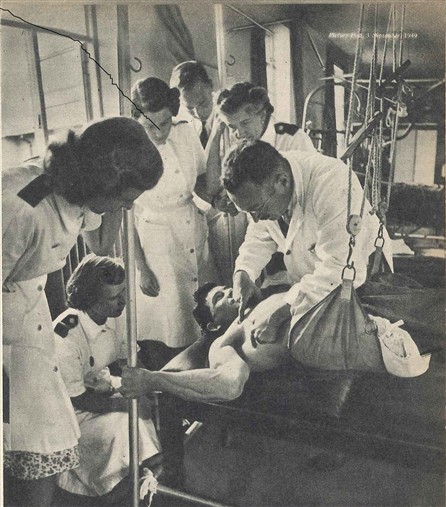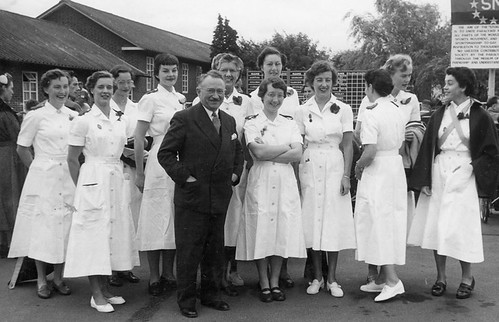With the changing political climate, Guttmann knew he and his family had to escape Germany.
"...In 1939 the German government ordered my father to go to Lisbon. He was to treat a good friend of the Portuguese dictator, Salazar... On the way back he stopped in London and met people from the Society for the Protection of Science and Learning, an organisation that was helping Jewish academics get hold of visas... and he had been offered a research post at the Radcliffe Infirmary in Oxford." (Eva Loeffler, daughter of Ludwig Guttmann, National Paralympic Heritage Trust)
Later in 1939 they immigrated to England and he began research at Oxford.
In 1943, the British government asked Guttmann to become the director of the new National Spinal Injury Centre at Stoke Mandeville Hospital.
"...it was in Autumn 1943, that it was decided to set up a new spinal unit at the former Ministry of Pensions Hospital Stoke Mandeville, Aylesbury, to deal with the increased number of spinal-cord casualities anticipated with the opening of the Second Front planned for the early summer of 1944." (Ludwig Guttmann, Western Mail)
Guttman agreed to lead the specialized center and was given autonomy over running it; his basic principle was a radical approach - provide comprehensive care from the beginning throughout all stages of treatment, incorporating sports therapy to build physical strength, self-confidence, and independence.


